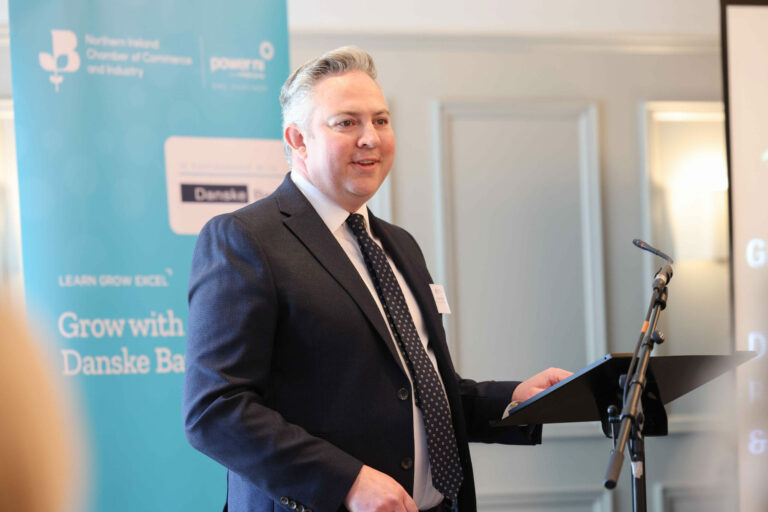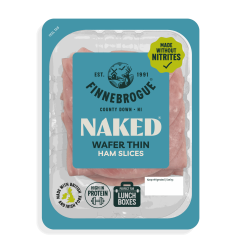The sun was shining this morning in County Down, for a Northern Ireland Chamber of Commerce event at Hinch Distillery.
‘Grow with Danske’ explored sustainability and operational excellence as key drivers for commercial growth.
Declan Ferguson, Finnebrogue’s research, development & technical director was one of the keynote speakers:
“Finnebrogue has traditionally been focused on controlling costs, lean manufacture and continuous improvement. But as the business has grown – from £3m turnover in 2009 to £200m next year (2023) – Finnebrogue has been ‘future proofing’ commercial growth through two key drivers, environmental sustainability and efficiencies.
“In 2021, the business set targets to hit by 2025, 2030 and 2040.
“By 2025, it wants to transition to 100% renewable energy, 100% packaging to be reusable, compostable and recyclable; and to achieve 50% average recycled content across all plastic packaging.
“By 2030, it hopes to achieve operational carbon neutral sites, and by 2040, it hopes to achieve net-zero greenhouse gas emissions.
“Over the last three years, the business has been tracking its carbon emissions and energy use with some encouraging results.
“Between 2021 and 2022, the business reduced its CO2 emissions by 1640 tonnes (certified CarbonQuote) and that trend seems to be continuing in 2023.”
Some of the efficiencies & sustainability measures being employed by Finnebrogue to hit its targets:
• Category 3 food waste is processed to create biofuel, generating 984 mwh of energy – the equivalent to 339 UK households annual energy consumption.
• Since September 2022, 5.9 tonne of food has been donated to charities or distributed to staff via The Food Shack scheme, thus avoiding waste.
• Zero waste to landfill since 2015.
• Onsite wastewater treatment puts less pressure on the local town’s network – Finnebrogue’s two DAF plants clean 111,119 m3 of waste water annually.
• 3,000 solar panels are erected on the sausage factory roof, generating around 400,000 kWh per year, and saving around 100 tonnes CO2 per year. Solar panels at the plant-based site will provide 31% of the site’s annual electricity demand and reduce its Co2 emissions by 582,064kgs/year.
• Refrigerant heat recovery – replacing a conventional oil boiler has saved 1.4GWH of energy and reduced CO2 emissions by 357 tonnes per year.






